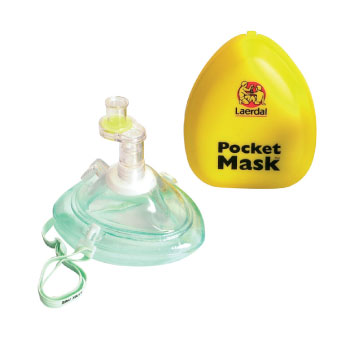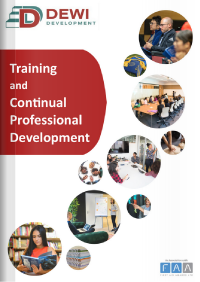Updated 28/09/2020
What is COVID-19?
COVID-19 is a new strain of Coronavirus first identified in Wuhan City, China in January 2020. The Coronavirus is a large group of viruses common across the world which cause the common cold to Severe Acute Respiratory Syndrome (SARS-CoV).
COVID-19 provides symptoms of a cough, difficulty in breathing and fever, which develop within 14 days of exposure. These infections can cause more severe symptoms with older people, people with weak immune systems or long term conditions.
The transmission of COVID-19 is currently unproven but is thought to be passed from person to person through small droplets from the mouth or nose which are spread when an infected person coughs or sneezes. These small droplets are either breathed in or land on surfaces which people then touch and may transfer to themselves if they touch their eyes, nose or mouth.
At this time there is no treatment for COVID-19. The best way to prevent getting it is to follow good hygiene, avoiding touching your face regularly and washing hands regularly.
Is there a risk to me attending a course?
The safety of our candidates, staff and venue hosts is our key priority and we can assure you that we take steps to minimise the risk of passing on the COVID-19 virus. If at any time we believe there is a high risk in running the course, we will take the decision to postpone. We can not eliminate all risks from attending the training, but we are putting in precautions detailed below to make it safer than going for your weekly shopping. We need to consider that risks of dying from an accident as no one was first aid trained, could be greater than catching COVID-19 on a training course.
What should I consider before attending the course?

You should not attend the training and contact us to discuss options, if:
- you are in isolation
- you have had a cough, difficulty in breathing, lost of taste and fever within 14 days of the course
- you have a cough, difficulty in breathing, loss of taste and fever on the day of the course
- you have been in contact with someone who has been diagnosed with COVID-19 in the last 14 days
- you have visited within the last 14 days an area or country on the government's list of areas to avoid
What should I do during the course?
While attending the course, you should:
- wear a mask when in public areas including halls, toilet, receptions and restaurant areas other than when seated to eat
- wear a mask when social distancing cannot be maintained within the classroom
- wash your hands with soap and water often, including on arrival, before food, after visiting the washroom, after carrying out CPR session
- where water is not available, utilise hand sanitiser gel
- cover your mouth and nose with a tissue or your sleeve when you cough or sneeze
- bin any dirty tissues immediately
- bin any manikin wipes immediately after use
- keep hold of any personal equipment for the duration of the course and do not mix it up with other candidates e.g. face mask
- do not touch your eyes, nose or face, if your hands are not clean
Should I wear a face-covering for the training?
It is now a requirement to wear a face mask to the course in all public areas, including walkways, toilets, reception and cafe when not seated to eat.
During the course when you are seated at your desk at a social distance, you will not have to wear your mask. If you leave your desk, you will need to put on your mask.
When we carry out scenarios which are not socially distanced, you will need to wear a mask and gloves where appropriate.
Why are you not requiring people to wear face coverings throughout the training?
If you have the virus, face coverings help stop the circulation of coronavirus when you cannot keep social distancing and risk coughing or sneezing over another person. We will be practising social distancing in the classroom and you should not be attending if you suspect you have COVID-19.
The WHO also highlight virus can multiply on damp and warm face coverings. If we wear the face-covering for the duration of the day, we will be reducing the effectiveness of the covering. We will maintain social distancing for the duration of the course and wear face coverings at all other times.
The coverings can affect communication as we cannot see lip movement and facial expressions. It is reported that only 7% of communication is what we say, so if we cannot see our faces we are impacting learning through communication. While socially distanced, we will support communication by not requiring the wearing of face coverings.
What should I do if I am diagnosed with COVID-19 after the course?
If you are diagnosed with COVID-19 after the course and it is suspected that you had COVID-19 on the day of the course, you should get in touch with us and the Welsh track and trace team immediately. We may then inform our team and those who attended the course, depending on our discussions with you.
Will I need to scan into the course with the Track and Trace App?
We are required to provide you with a QR code so you to scan into the event each. It is optional whether you wish to scan the code.
As part of registering for the course, you are required to provide us with your e-mail and phone number, so we can contact you should a COVID-19 concern be reported after the course.
What precautions do you take with the training?
All of our trainers as a standard follow strict hygiene guidance with our equipment and all staff are informed to follow standard hygiene guidance.
All Training
If we suspect someone is unwell with the symptoms of the COVID-19 virus, we will ask them if they could potentially have the COVID-19 virus. No one should be offended by us asking as a precaution or to us asking them to leave the course if we believe they may be infected.
Prior to the training, candidates will be asked to complete an online module covering safety on the course they are attending and will have to complete a safety declaration before attending.
All handouts will be prepared in advance of the course, providing time for any virus that should get on to handouts to die.
At the end of each course, we will disinfect equipment before placing it back into storage.
First Aid Training

We will provide candidates with new bandages on each course as part of set equipment which they keep for the duration of the course.
Candidates will have the opportunity to practise their bandaging and burn skills on model arms, to minimise the time practising on one another.
When candidates need to practise a full first aid scenario with another person, they will work to the same pair throughout the course to minimise the number of people they come into contact with.
Our Annies are fitted with lungs with one-way valves. These one-way valves stop expired air from the lung returning to the candidate, but directs the air out the back, behind the face of the Annie.
As part of our resuscitation training we will:
- provide candidates with their own face mask to use for the duration of the course
- instruct candidates to clean the faces of the Annies after each use
- change the faces at the end of each day. The faces will be sterilised and left to air dry
- change the lungs at the end of each course
- wash the Annies with soapy water at the end of each course
- machine wash any clothing after each course
How else can we access training?
We can offer bespoke Continual Professional Development training over Skype or Zoom, allowing candidates to be safe in their own locations.
Further information
Resuscitation Council - COVID-19 CPR teaching guidance
WHO - COVID-19 advice for the public
References
Source: Gov.uk - COVID-19: guidance for employers accessed 13/03/2020
Source: WHO - Q&A on coronaviruses (COVID-19) accessed 13/03/2020














